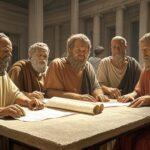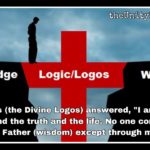
Is the foundation of my faith theological or philosophical? What is the difference? By far, the vast majority of Christians are theological Christians and not necessarily philosophical Christians, and while on the surface it may look similar to the casual onlooker, especially those who do not understand the difference, at the foundation, it can be quite different. While I have no emotional judgmentalness against theological Christians for their foundation, I […] Read more »










